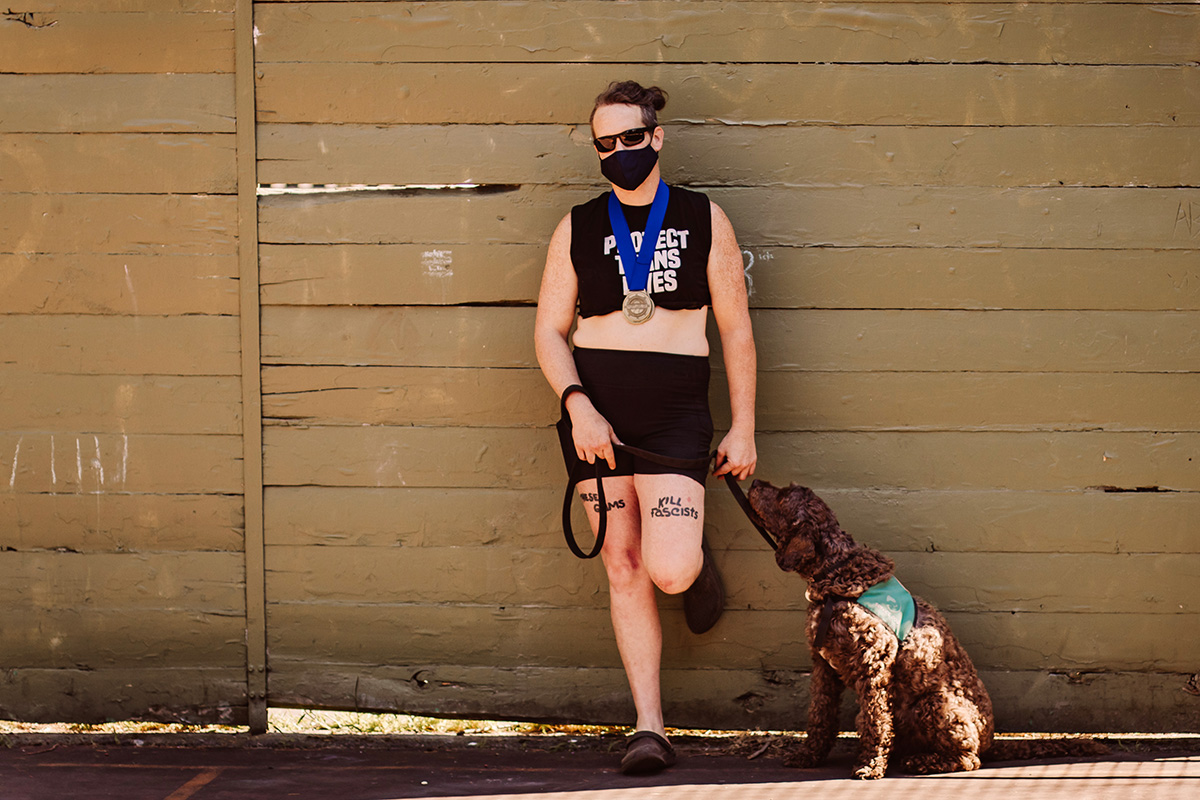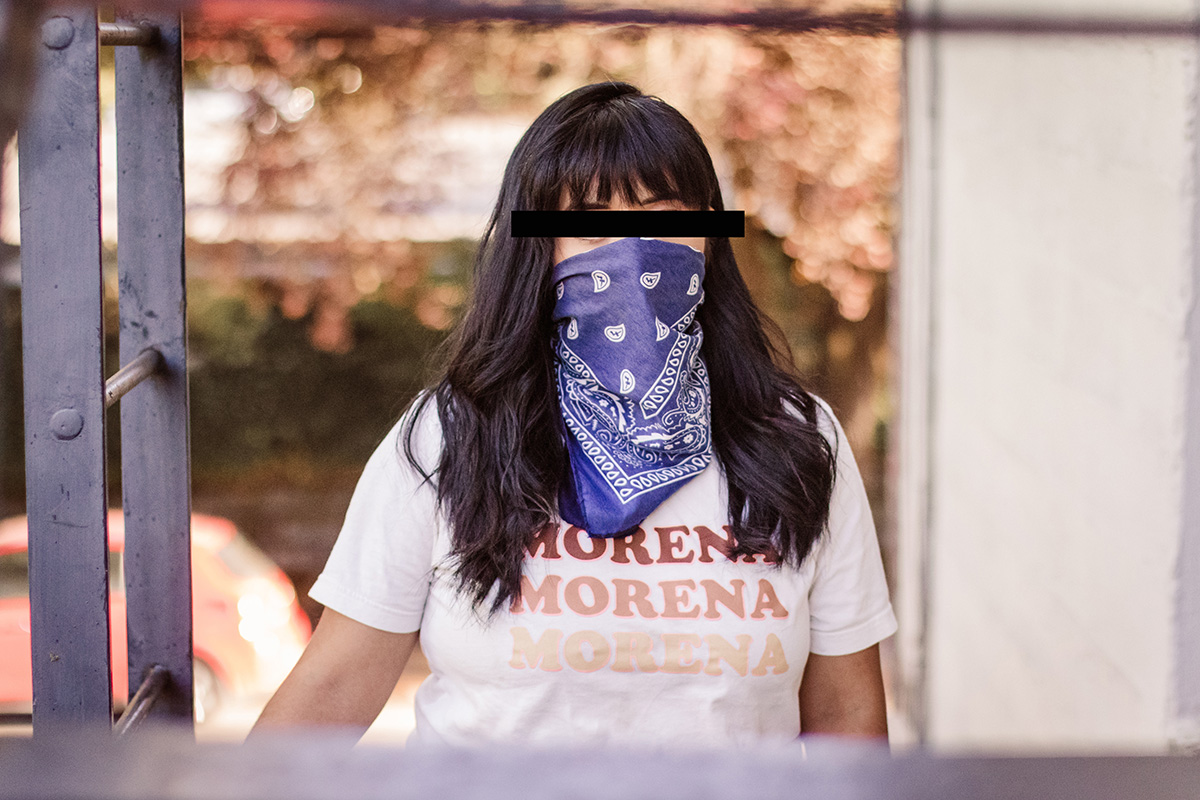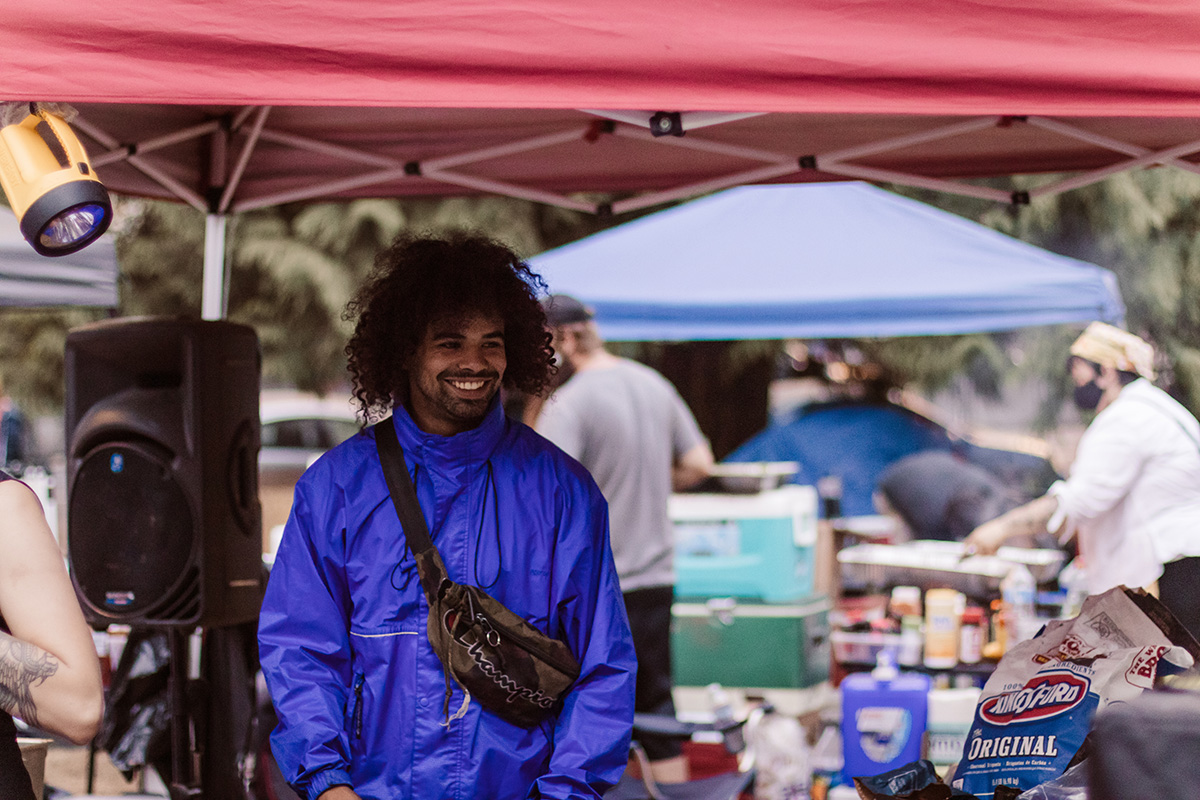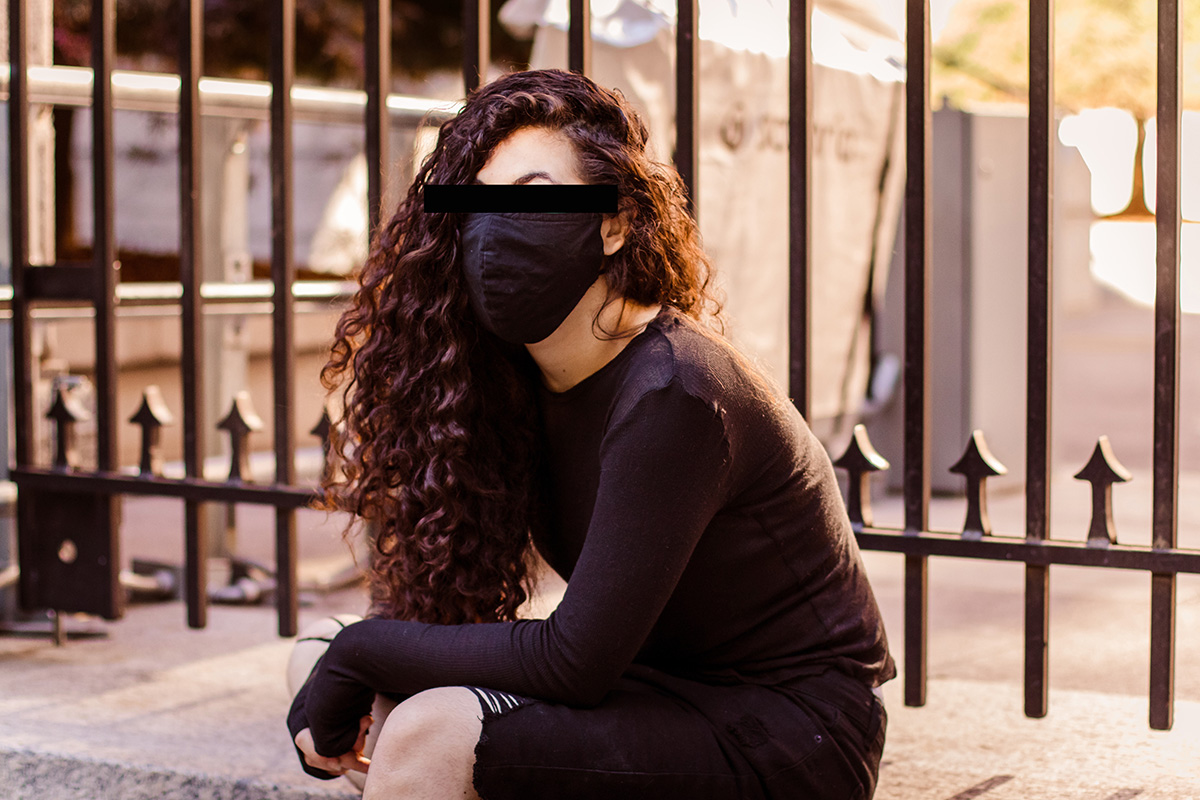For more than 50 days straight, Portland activists have protested against police brutality and systemic racism in a movement toward racial equality centered around Black lives.
Every night of those demonstrations, protesters have been met with the brutality they are speaking out against. Flash-bang grenades, tear gas, pepper spray, pepper bullets and other munitions have been deployed against unarmed citizens. The Portland Police Bureau has clashed with protesters primarily in front of the Multnomah County Justice Center and federal courthouse downtown, but also in residential neighborhoods, harming bystanders and residents alike. Since last week, federal police sent by President Donald Trump have joined the bureau in their assault on demonstrators, even as local officials have asked them to leave town.
PROTESTS: Portland demonstrators say their city is calm — until the feds sow chaos
Street Roots spoke with four protesters about the harm and injuries they’ve endured from Portland police and the federal officers — and why they’re not stopping the fight toward racial equality.
Two interviewed, including Juniper Simonis, are pursuing legal action. Some have asked to sustain some level of anonymity to protect themselves from further targeted brutality.

Juniper Simonis
(they/them)
Juniper Simonis is a quantitative ecologist and four-time roller derby champion. Simonis has primarily kept to the east side of town and smaller neighborhood protests.
“I’ve been pretty active, but it’s hard to be active as a disabled person because the police act in unpredictable ways,” they said.
While attending one downtown protest, a flash-bang grenade was shot toward Simonis and their dog, Wallace. They happened to be in an intersection between protesters and federal officers.
“I was scared,” said Simonis, who wanted to find a way to let people know where to stand off federal property while protesting.
On July 10, they went to the Edith Green-Wendell Wyatt federal building to mark a border on city property with surveyor’s chalk so protesters could see the boundary between federal and city property. Just before finishing, Simonis was surrounded by Department of Homeland Security officers from the Protecting American Communities Task Force (PACT) and Federal Protective Service. Simonis was physically assaulted, forcibly separated from their service dog and arrested.
“In various previous interactions with them, I had already explained what I was doing and told them that I have C-PTSD and a service dog,” they said.
Simonis said they were repeatedly misgendered, denied their right to invoke a lawyer, and left without medical attention during the majority of their time in custody.
“During the acute effects of OC gas, I was not attended to by trained medical professionals. I was left on the floor of the Green-Wyatt foyer with a burning face and head, while experiencing a traumatic PTSD response,” they said.
“I understand that I am targeted because I have information, and I am visibly trans and disabled,” Simonis said. “But I am white, and I am a citizen, and I know it’s more dangerous for people who aren’t white and aren’t citizens.”

V
(she/her)
V is an essential worker at a grocery store. She’s Mexican American, and she grew up in Arizona, but her family is from the area where Texas is, before it became a state. She moved to San Diego when she was 18 and eventually made it up here to Portland, where she said it’s been “extremely eye opening for me and for many people … for how white it is. I really started working through a lot of my identity stuff when I got here.”
“I felt like my social consciousness didn’t really start waking up until I moved to Portland; that was really when I started unpacking a lot of my journey as far as racism in general,” she said in response to why she protests. While running Shanice Clarke’s campaign for the Portland School Board in 2019, she saw how Black and brown kids are affected and saw the local systemic issues of racism.
“I’m out there because I’m fucking sick of seeing it, hearing it, of seeing my Black friends suffer, whether it’s first hand or second hand through violence from the police. I’m just so sick of it,” she said.
At the beginning of the protests, V attended larger demonstrations in other parts of the city, keeping away from the Justice Center because she didn’t understand how it was being organized. She eventually started going about a month ago, when a friend invited her. On her second day of protesting at the Justice Center — when there were about 100 protesters, she estimated — she was standing on a curb when a police SWAT vehicle came abruptly around the corner and grabbed her and five other protesters she was standing with.
“I can’t stress enough to people how fast it happened. They just jumped off and grabbed us,” she said.
V was detained for 10 hours and charged with disorderly conduct and interfering with a police officer.
“I know we were all very sketched out by how fucking weird, uncomfortable and scary it was to be in a room full of white male cops. They were laughing … laughing at trans people,” she said.
The official who interviewed V asked her if she was scared, she said.
V recounts feeling targeted. Of the group she was standing with, she said, two men were released and only one cis man was detained. “Everybody else was disabled, Black, brown and trans people,” she said.
“We constantly worry about each other if we don’t hear from each other. We’ve had several people get arrested since then. Another trans male (in our group), a Black person — they really fucked them up. Kicked them when they were down, broke their phone, arrested for 12 to 13 hours,” V said. “For me, and a lot of us, it’s so hard to process. There’s just a lot of anger.”
V and her group still go out consistently but feel psychological trauma, having flash-bang and tear-gas dreams.
“We’re hypervigilant, and a lot of us are dealing with aggression issues because we don’t know how to turn it off when you’re out there every night for six hours. A lot of us can’t sleep. I can’t eat well. I got my period twice this month, which I know is from tear gas.
“I think a lot of the trauma is not going to happen until we’re all done with this.”
PHOTOS: The progression of police response to Portland protests

Rico
(he/him)
Rico is from Carolina, Puerto Rico. He was living there until he came to visit his best friend in Portland two days before the protests started. He found $132 tickets to Portland, and once the protests began, he decided to stay. He’s been a core organizer with Riot Ribs, a kitchen that has served hot meals and distributed clothes and medical supplies 24/7 since July 4.
“The PPB patrols here in military-grade riot gear — just for intimidation. But they stopped here on Fourth and Salmon while we were barbecuing. There were only five of us,” Rico said, “and they were asking us to leave. I asked them if they could peacefully leave, and they said, ‘We’re trying to.’ And they laughed at me. So once they started driving back, a passenger aimed at my head and then took a shot at my chest. I was talking at the window.”
Rico has two broken ribs and a bruised lung. He continues working with Riot Ribs. He noted how his voice has gotten raspy due to repeat exposure to tear gas.
“Our voices are just gone because we’re breathing this stuff. I sound like I’ve been smoking cigarettes my whole life,” he said.
“My biggest issue is the system. That’s actually everybody’s issue. We have no bare necessities while everybody else does. I’m talking about the corporation kings. We know who they are — the people in power, come on. They’re out here ballin’ outta control while we’re out here (like) sheep, slaving and still not getting ends (to) meet. People work paycheck to paycheck. Even if you have 50, 80, 100,000-dollar jobs, you still somehow live paycheck to paycheck. Those people don’t own nothing. All that they owned is leased. Your life is leased. You have a number. A Social Security number. You’re a number. They pretty much branded you, and you are in debt from the moment you’re born. You have to pay for food and water, and that shit is free. It’s abundant. It’s in the world; you see it here through Riot Ribs,” he said, gesturing back to the Riot Ribs station, overflowing with donations. “Do you see how much food we have here?”
Rico estimated Riot Ribs serves 7,000 people a day — and 20,000 plates. He said he’ll stay in Portland indefinitely or “until we shut down the system. Then I can do whatever I want. Then we can all relax.
“We do it through each other,” he said. “We give people shelter, food, water, services, anything and everything we can get to; we will try and help. The community is doing it.”

J
(all pronouns)
J is a Pacific Islander, born and raised in Portland. J is a mixed media artist and an opera singer of 14 years and has worked as a stripper.
“So you could say I’m very Portland,” they said.
“As someone that is Pacific Islander, it’s interesting, the relationship I have with Oregon. If you’ve been downtown in the square right outside of the Justice Center, there’s a statue (commemorating) America claiming Guam and the Philippines,” they said.
“It was interesting going down there every day protesting against an entire system and government that imperialized my home nation and to this day treats us all like shit. I have a very love-hate relationship with this place.”
On June 26, J said, Portland police assaulted them during a protest. An officer shoved them by the throat, leaving a visible thumb and forefinger bruise on their neck. They said they were dragged away and the officer returned. To protect themself, J got on the ground and grabbed the officer’s leg to prevent him from kicking them.
“In the past, I was abused as a child, and one of the things that person would do is kick me once I was on the ground. So my brain just went there. I was on his leg, hoping to keep him (from) kicking me, and a fellow officer came up and, from 2 to 3 feet away, shot 11 pepper balls at me.”
J was hit by all 11 and received welts and bruises all along their leg and buttocks.
The officer kneeled on J’s neck while arresting them, causing cuts and abrasions to their upper face.
“I started screaming and struggling and fighting when he kneeled on my neck because he told me that it was intentional. He was like, ‘This is what you earned for yourself. This is what you wanted, isn’t it?’ So I started yelling what was happening because I was like, no. I’m not dying without anybody at least hearing what’s going on,” J said.
J had a seizure while in custody. They were brought to the hospital, where their injuries were not tended to, J said; hospital workers checked only to insure J wouldn’t die from a seizure while in custody.
“I was raised to expect this to happen,” J said, reflecting on growing up in a military family and the history of how the U.S. took the Mariana Islands. “They put our people in camps. There are people alive in my family who went through that,” they said.
“Black people are the canary in the coal mine, unfortunately, in this scenario. The effects of racism against Black people is damaging and affecting everybody else.”
“Seeing (racism) every day of my life and finally having a chance, a small fucking chance, a modicum of an opportunity to do something to change it? Absolutely no way you could convince me not to,” J said. “This is what I was given breath for.
“I came out of that whole event more radicalized. It just steeled me in my resolve to continue doing what I’m doing.”
OPINION: Struck by a rubber bullet: My experience as a Black woman at a Portland protest


